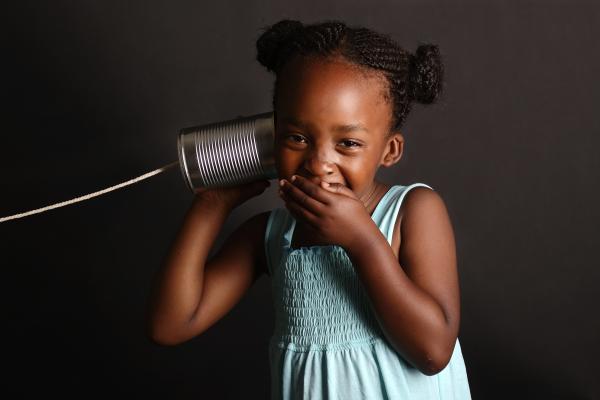We’re a long-distance millennial couple participating in Emma Watson’s feminist book club and writing about it. To read along with us (and Emma!), start here.
“When I was a child, it was clear to me that life was not worth living if we did not know love.”
Thus begins All About Love: New Visions by the esteemed writer, feminist, and American cultural critic bell hooks. In this exploration of the philosophy of love, bell hooks muses about loves familial, romantic, platonic, and sacred in her attempt to parse out her childhood belief that genuine love is essential to a life worth living.
We (Olivia and Kurt) are on a similar journey of discovery about what love is. All About Love opened up a space for us to discuss more deeply the process of learning to love. As bell hooks affirms, “We want to live in a culture where love flourishes.” And we’re excited to begin the journey of creating that world together through honest conversation.
Olivia: bell hooks starts by saying that in order to return to love, we need to look at love as a verb, not as a noun.
One thing I really love about this book is the organization of themes, moving from love found (or not found) in childhood and friendships to community, romantic partnerships, and faith, and ultimately to culture more broadly. bell hooks “tells us how to return to love” in all aspects of our life, micro and macro, theoretical and practical.
Kurt: Yeah, she really emphasizes loving and working on how to love, instead of having or not having it. Another way to put it is hooks is advocating for love as a way of being, as a mode of existence — it’s not an innate feeling you just have. Instead of objectifying love, or making it simply an instrumental, fungible, and unconscious thing, she explains that it must be a way of living and acting in the world. And it takes practice and intentional conversation to love. As she puts it, “Embracing a love ethic means that we utilize all the dimensions of love...in our everyday lives.”
Olivia: Precisely. And I loved that she goes on from that statement to talk about the fact that media outlets are the biggest perpetrators of the non-love ethic.
Throughout Chapter 11, “Loss: Loving into Life and Death,” hooks brings up the amount of death we see in movies and on the news, how much violence we hear in music and in our daily language, and the overall lack of love and overabundance of fear that permeates our culture.
Kurt: I knew you would like that chapter, seeing as whenever we watch TV you point out all of the violence, disapprovingly.
Olivia: And she identifies exactly what I mean when I complain about it! She discusses our larger cultural obsession with death — naming it a “worship of death” which is “rooted in fear.”
We write about that and talk about that here at Sojourners, especially when we talk about our country’s obsession with guns. But I never quite could identify how, as she says “We all know what violence looks like,” and so how it is easier to portray that on a screen — versus love, which is the world’s great mystery.
And then at the end of her chapter on love and loss, hooks explains why death, the unknown, and strangers scare us: It’s because we don’t want to surrender. But love, she says, “empowers us to surrender.” For someone like me, who likes control and knowing what’s up, surrendering to the unexpected is really scary and I’m not sure I could do it if I didn’t have any love in my life.
Kurt: And in a world that is often supported by a masculinist agenda — one that says people need to be impermeable and tough — it is quite a different dictate to be vulnerable to another’s thoughts, emotions, and actions. Especially so as a man, I think — though you see it affecting all genders and cultural norms.
Olivia: Right. Even women, who are stereotyped as “emotional,” cannot display those emotions or talk about love if they want to be taken seriously. Love is considered a “soft” subject, non-essential to relationships of all kinds, which is simply a lie.
Kurt: The other theme I really adored was hooks’ discussion of community in Chapter 8, with the philosophical commentary she gives on the mythicized belief that humankind's genesis was that of the "rugged individual." This myth is that a human comes out of an independent cave to leave freedom behind, in order to form a social contract with the masses. This myth indicates that communal living is unnatural. But hooks points out that we humans have always lived in community, and that it is essential to survival.
Olivia: Like other non-human animals that mostly live in packs or communities.
Kurt: Exactly. And it wasn’t until recently, with the advent of modern capitalism, that people have retreated to the private sphere. This means we now believe that people can live secluded lives, only interacting with our most intimate connections — whether that be our nuclear family, romantic partner, or just with a pet animal. Hannah Arendt, another philosopher, offers a similar critique on people's retreat from the community and into the private sphere, naming it as a byproduct of capitalism.
Olivia: Wow, yes. Down with isolation and capitalism — up with an ethic of love!
Our Ratings:
Olivia: 3.5 out of 5. Packed with wisdom, poetic language, and challenges to the status quo, All About Love is a wonderful primer for talking about what happens when love doesn’t exist in someone’s life and dreaming of what a culture of love could look like.
Kurt: 4 out of 5. I like the narrative structure! And the philosopher within me loved her criticisms and tendency for questioning taken-for-granted assumptions.
Got something to say about what you're reading? We value your feedback!

